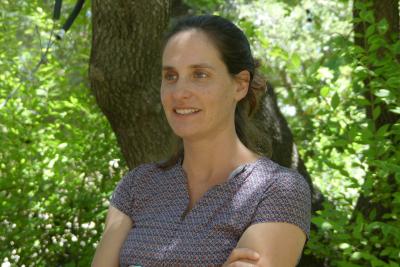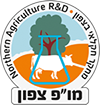
Synopsis of research - Dr. Mery Dafny Yelin
Mery Dafny Yelin is a researcher at Northern R&D, Migal, located in Kiryat Shmona in the north of Israel. She is a phytopathologist conducting applied agricultural studies on topics of importance to local farmers. Her research combines laboratory and field trials. Research topics in her laboratory focus on developing integrated pest management (IPM) protocols for deciduous fruit trees, grapevines, and vegetables. Her activity combines tolerant varieties/rootstocks with antimicrobial treatments for significant increases in yield. Among the antimicrobial treatments tested are innovative enzymes produced in directed enzyme evolution to disrupt a population-density-dependent regulatory mechanism in pathogenic bacteria.
Synopsis of research - Dr. Mery Dafny Yelin
Mery Dafny Yelin is a researcher at Northern R&D, Migal, located in Kiryat Shmona in the north of Israel. She is a phytopathologist conducting applied agricultural studies on topics of importance to local farmers. Her research combines laboratory and field trials. Research topics in her laboratory focus on developing integrated pest management (IPM) protocols for deciduous fruit trees, grapevines, and vegetables. Her activity combines tolerant varieties/rootstocks with antimicrobial treatments for significant increases in yield. Among the antimicrobial treatments tested are innovative enzymes produced in directed enzyme evolution to disrupt a population-density-dependent regulatory mechanism in pathogenic bacteria.
The main topics in her laboratory are: 1. Fire blight caused by the bacterium Erwinia amylovora, a devastating disease for pear and apple trees worldwide. She found that high-density ‘Spadona’ pear orchards show reduced tree sensitivity to fire blight damage due to decreased tree vigor. In addition she showed that copper application against fire blight in pears and apples during blooming in Israel is both effective and harmless to yields. 2. White root rot caused by the soil fungus Rosellinia necatrix, a destructive disease in deciduous trees that harms mainly apple and cherry orchards, although most crops are susceptible to it. Infested soils cannot be used again and are therefore abandoned. Her laboratory group mapped the infected plots, found the source of infection, and found that grapevine and GF677 pome rootstock can grow in infested soils. 3. Southern blight caused by the soil fungus Sclerotium rolfsii, which can be devastating to summer crops such as peanuts, tomatoes and carrots in the northern valley of Israel. Her laboratory group developed an IPM protocol that combines fungicide application with tolerant peanut varieties for a significant increase in yields in infested soils. In tomato, they found that using a resistant rootstock with only one application of fungicide can significantly reduce disease damage. 4. Reduction of downy and powdery mildews in grapevine using resistant varieties, and ozone and UV-C treatment.
